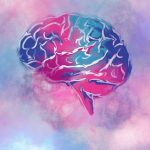
You toss, you turn, you can’t fall asleep. Certainly, there are sleep medications that can be prescribed by a doctor. And with some investment of time, cognitive-behavioral therapy for insomnia is considered to be an effective option. Yet, there are also a lot of healthy sleep habits and natural sleep aids that some experts believe can make a difference, too. With more than 60 million Americans suffering from poor sleep quality, according to Johns Hopkins Medicine, it seems like these easily accessible options could be worth a try when searching for the best natural sleep aid. Practice good sleep hygiene About 20% of Americans take sleep medication, according to recent research from the U.S. National Center for Health Statistics. Those include a long list of drugs, such as Sonata, Lunesta and Ambien. But Dr. Sanjeev Kothare, a sleep expert and pediatric neurologist at Cohen Children’s Medical Center in Queens, N.Y., suggests starting with some basics to make sleep a little easier. ‘There are certain natural things that you can take and there are certain things that you can do,” Kothare said. Start with healthy sleep hours, Kothare recommends. For adults, that means going to bed at roughly 10 to 11 p.m. and waking up at 7 a.m., to get a good seven to eight hours of sleep. Teenagers need eight or nine hours a night.… read on > read on >


















